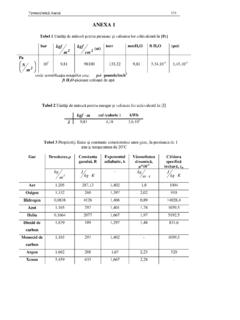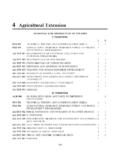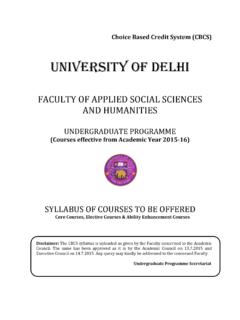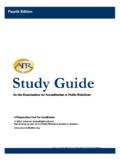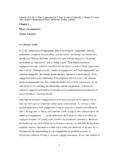Transcription of A HISTORY OF THE BRITISH PEOPLE, THEIR …
1 INSTRUCTOR: Dr. REMUS BEJAN Office Hours TH 12:00-13:00 F 12:00-13:00 and by appointment University Campus, Room 119 A HISTORY OF THE BRITISH people , THEIR culture & CIVILISATION In the course, we will study capital aspects of the social and economic and political development of the BRITISH society, as well as significant works of art (literature, painting, music, architecture) representing a diversity of forms of expression from key historical periods. We approach these works as creative expressions of THEIR historical and cultural contexts to build a better-informed understanding of BRITISH culture and creativity.
2 This introductory course is expected to lay a solid foundation for understanding and appreciating Britain s rich diversity and creative achievements. PREREQUISITES The HISTORY of the BRITISH people , THEIR culture and Civilisation is an introductory course and students with university entry-level thinking, reading, writing & communication skills (First Certificate /Teofel) should be well prepared to succeed in this course. No previous coursework in BRITISH culture and civilisation is required, although such background is, of course, valuable.
3 LEARNING OBJECTIVES Regular class attendance, active engagement with primary historical documents and BRITISH creative works, participation in seminar discussion and small group activities, completion of written assignments (essays and dissertation), progress tests and Final Examination (with self-evaluation) are designed to help the students achieve the following key course learning goals: Knowledge: recall and recognise specific information (name, describe, define, identify) comprehend and digest cultural information (compare, contrast, comment, argue) know basic terminology of the subject analyse aspects of BRITISH civilisation with an understanding of the component parts and THEIR relationships Skills.
4 Read and interpret content of passages from historical documents, newspapers, magazines (locating the main idea, finding details, determining patterns of writing, drawing conclusions and making inferences, reading critically, separating fact from opinion, determining cause and effect, determining the meaning of civilisation terms from the context of the passage; read and interpret graphics: maps, tables, and graphs; synthesise information, taking an overview; apply the basic terminology of the subject in THEIR analyses; evaluate THEIR own knowledge, understanding and competence critically; communicate THEIR opinions, the results of THEIR independent research efficiently, either in written (essay, summary),or oral form (oral presentation); transfer THEIR knowledge and skills to other domains (communication, interpersonal, quantification, analytical, synthesis, problem solving, evaluation skills).)
5 Attitudes: take a serious interest in the subject. Remus Bejan 2 CONTENT AND STRUCTURE Britain s Prehistory. (250,000-2,500 BC) The Stone Age: Megalithic monuments (Stonehenge). The Bronze Age: the Beaker folk. The Iron Age: the Celts. Roman Britain. (43-410) Julius Caesar in the BRITISH Isles. The Roman Conquest (43-60). Town and Country Life in Roman Britain. Society and Government. Religion. Visual Crafts and Arts. The Dark Ages. (449-1066) The Anglo-Saxon Invasions. The Heptarchy. The Conversion of the Anglo-Saxons.
6 The Vikings. Alfred the Great. The Making of England. Society and Government. Law and Order. Everyday life. The War. Visual Arts and Crafts: book illumination. Architecture: local tradition and Carolingian influence. Music: from Gregorian monody to polyphony. Literature: the heroic tradition: Beowulf; lyrical and religious poetry; prose. Celtic Britain: Scotland, Ireland. The Middle Ages. (1066-1485) The Norman Conquest. The Angevin Kings. The Crusades. John I and the Magna Carta.
7 The Hundred Years War. Kingship in crisis: The Wars of the Roses. Feudalism. The Celtic Fringe: Scotland, Wales and Ireland. Town and Country. The Economy. Kingship and Church. Society and government. Law and Order. The Age of Chivalry. Religious architecture: Romanesque and Gothic. Secular architecture: the Castle. Sculpture. Book illumination. Religion. Crafts, trade and towns. School and Universities. Architecture: the Gothic (Decorative and Perpendicular). Literature: romances, mysteries and miracles.
8 Geoffrey Chaucer. Music: Troubadours and minstrels. Ars Nova. Chapel Royal. The Tudors and the Making of the Nation State. (1485-1604). The Reformation. Renaissance and Humanism. Literature: drama. Shakespeare. The Golden Age of English Music: Byrd, Dowland. Painting: portraiture (Holbein), miniature (Hilliard). Architecture: the influence of the Italian Renaissance. Prodigy houses. Parliament against the Crown. (1604-1714). The Stuarts and the Civil War. Puritanism. Commonwealth and the Republic.
9 The Restoration. The Glorious Revolution and the Constitutional Monarchy. The Revolution in Thought: Hobbes, Newton. Palladian and Baroque Architecture: Inigo Jones, Christopher Wren, John Vanbrugh. Painting: Dick van Eyck. Baroque Music: Henry Purcell. Literature. Classicism: John Milton, John Dryden. Politics and Finance. (1714-1816). Walpole, Pitt and the Hanovrians. The Loss of the American Colonies. The French Revolution and the Napoleonian Wars. Town and Village. The Age of Reason. Philosophy: Hume, Berkeley.
10 Literature: the rise of the novel. Architecture: Baroque and Neo-classicism; landscape design. Panting: Hogarth, Gainsborough, Reynolds. Music: Haendel. The Victorian Age. (1816-1900). The Monarchy and the Empire. Conservatives and Liberals. The Town. Progress in science and technology. Architecture: the Battle of Styles: Gothic vs. Classical. Painting: Constable, Turner, the pre-Raphaelites, Whistler. Literary Romanticism. Poetry: Wordsworth, Coleridge, Shelley, Byron. The Victorian Novel: Dickens, Thackeray, Hardy.
